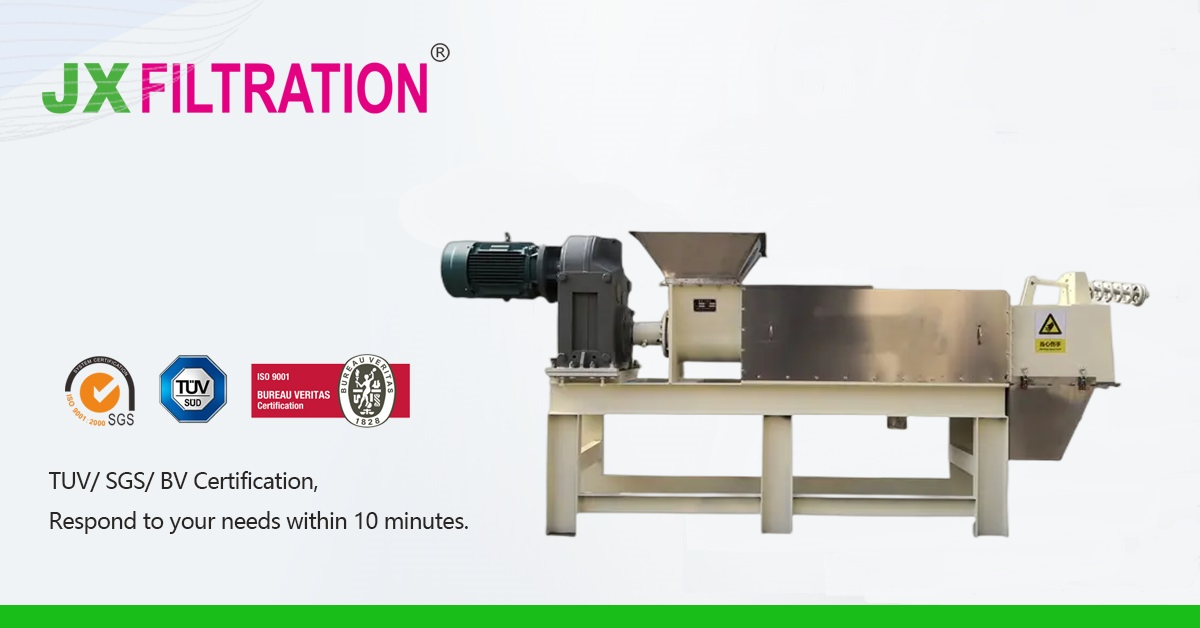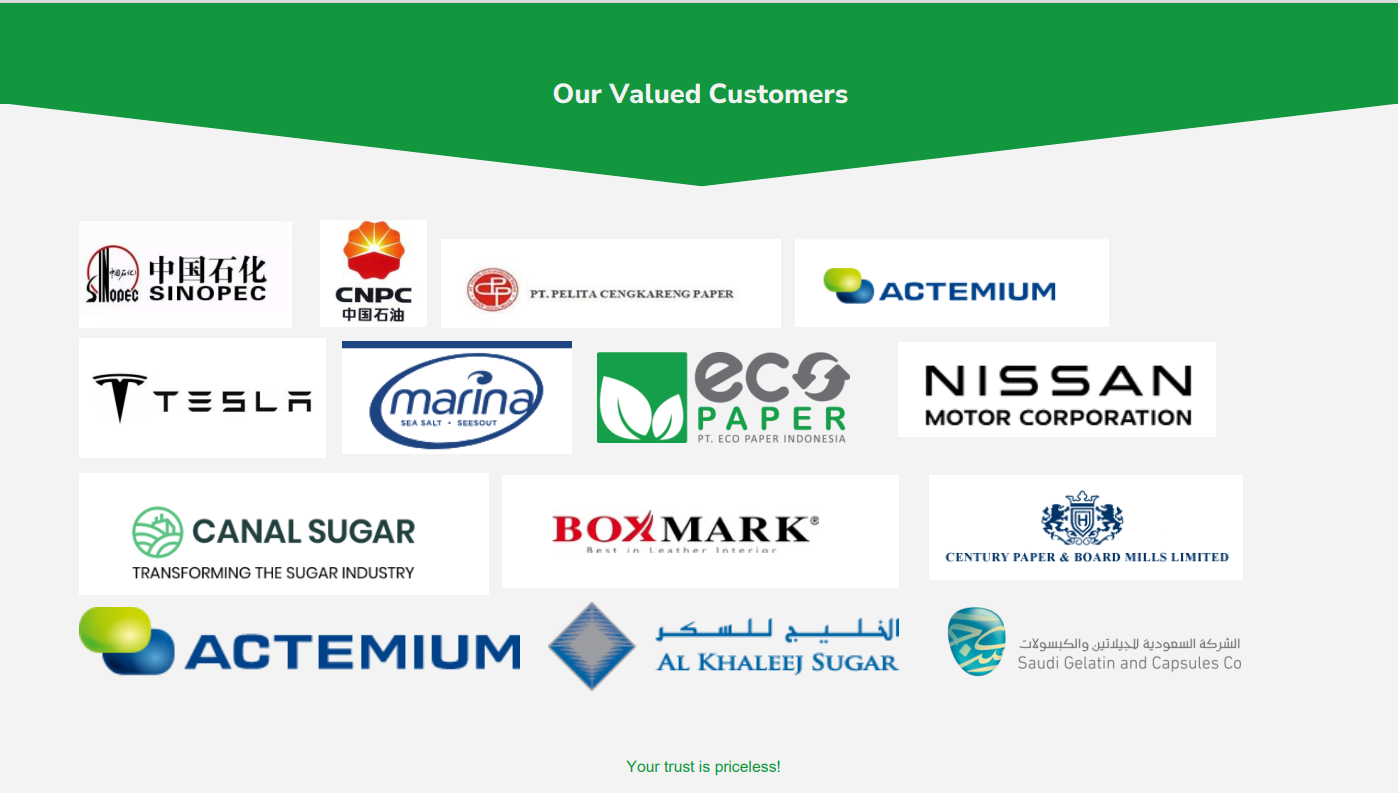What is a Screw Press?
A screw press is a mechanical device that uses the rotational force of a spiral shaft to apply pressure on materials for squeezing, dewatering, or separation. Through the advancing action of its spiral structure, it gradually increases pressure on the material, separating liquids (e.g., water, oil, juice) from solids. It is widely used in food processing, environmental protection, agriculture, chemical industries, and other fields.

Main Components
- Spiral Shaft: The core component, typically designed with a variable diameter or pitch. Its rotation pushes materials forward while applying pressure.
- Screen/Filter Cylinder: Surrounds the spiral shaft, allowing liquids to pass through pores while retaining solids.
- Drive Unit: A motor or hydraulic system that powers the spiral shaft’s rotation.
- Inlet and Outlet: Entry for raw materials and exit for dewatered solids.
- Adjustment Mechanism: Modifies pressure or discharge resistance to control dewatering efficiency.
Working Principle
Material enters through the inlet and is propelled forward by the rotating spiral shaft. As the shaft’s diameter increases or pitch decreases, the material undergoes progressive compression, forcing internal liquids to be expelled through the screen. Dehydrated solids are discharged from the outlet, completing the separation process.
Typical Applications
- Food Processing: Extracting fruit juice (e.g., apples, grapes), pressing vegetable oils (e.g., rapeseed, olive), handling distillers' grains or soybean residue.
- Environmental Protection: Sludge dewatering in wastewater treatment plants, food waste processing.
- Agriculture: Dehydrating silage, treating livestock manure.
- Recycling: Dewatering washed waste plastics, pulp squeezing.
Key Features
- Continuous Operation: Capable of 24/7 operation, suitable for industrial production lines.
- High-Efficiency Dewatering: Pressure gradient design significantly reduces solid moisture content.
- Material Adaptability: Handles viscous, fibrous, or granular materials.
- Energy-Saving & Eco-Friendly: Lower energy consumption and noise compared to centrifugal dewatering.
Considerations
- Material Pretreatment: Crush large or hard materials to prevent screen clogging.
- Screen Selection: Choose pore sizes based on material properties to avoid excessive solids in liquids.
- Maintenance: Regularly clean screens and inspect spiral shaft wear.
For example, in juice production, a screw press efficiently extracts pulp liquid while separating peels and pomace. In sludge treatment, it reduces moisture content from over 95% to around 60%, significantly lowering downstream processing costs. Specific models should be selected based on throughput, material characteristics (e.g., viscosity, fiber content), and dewatering requirements.
Contact us today for a free consultation!
Julie
Email: sales@filtrationchina.com
Mobile / WA / WeChat / Line / Viber: +86 159 2865 0174

